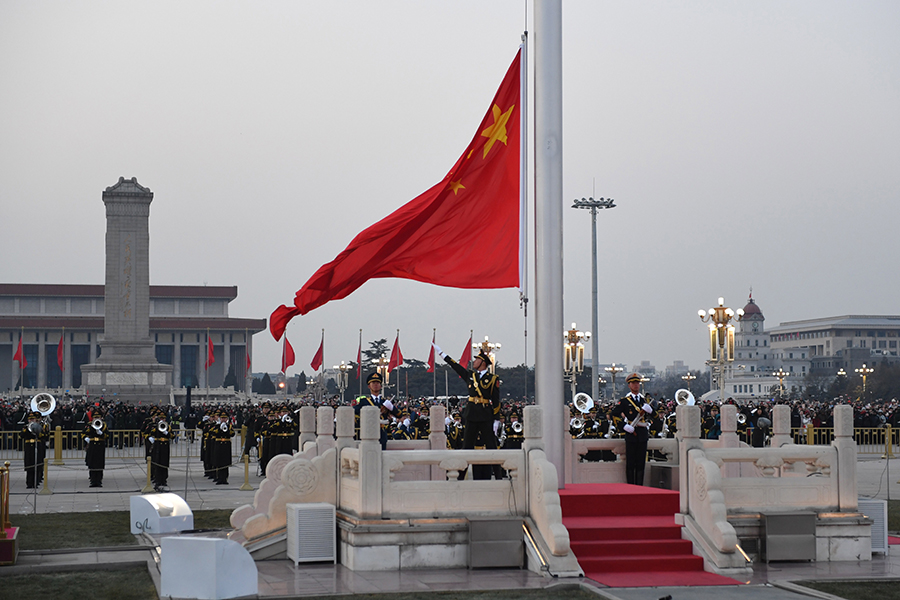
Having secured another four years as the leader of Taiwan on Saturday, it is an opportunity for Tsai Ing-wen to recalibrate her approach to cross-Straits relations for the benefit of the island and its residents.
By dialing down the confrontational approach she has taken toward Beijing, she could not only ease the cross-Straits tensions, which have been rapidly worsening over the past couple of years, but also prevent the island being recklessly used by Washington as a pawn in its games.
It was the landslide defeat for her Democratic Progressive Party in the mid-term local elections on the island in late 2018 that prompted Tsai to resort to more desperate measures to reverse the situation.
Thus in the second half of her first term with her controvertible stance hitting the island's economy, Tsai became even more purposeful in displaying her secessionist colors in order to curry favor with the US. She eventually tapped into the upheaval instigated by the US in the Hong Kong Special Administrative Region in order to demonize the "one country, two systems" framework, which Beijing has also proposed for the island.
The climax of Tsai's efforts to create a pro-secessionist atmosphere on the island came at the end of last year, when the DPP forced through the island's so-called Anti-Infiltration Law to legalize its power to not only identify and label "infiltrators", but also punish them. Which is nothing but a scheme to enshroud the island in a McCarthy-style witch hunt to its own advantage.
The Tsai administration turned to such tactics in order to cover up its inability to address the economic and livelihood problems on the island, which it has so far left unattended.
Unfortunately, her words and actions after the election suggest that rather than reflecting on the damage her first term in office has done to cross-Straits relations, Tsai will double down on that approach. Meeting with William Brent Christensen, a US diplomat who is director of the American Institute in Taiwan, on Sunday, she praised the US administration for its support and expressed her hope she would be able to strengthen her ties with the US administration.
Although she also professes to want dialogue with Beijing, she intentionally omitted the fact that it can only happen under the one-China principle established by the 1992 Consensus. Seemingly extending the olive branch to Beijing while buttoning her lips up on this suggests that she intends to continue with her truculent ways and has no qualms about dissembling.
But having grabbed onto the coattails of the US' maximum pressure strategy against the Chinese mainland as her political lifeline, she should now let go. Continuing to push for separatism will only aggravate confrontation with the mainland. She should be aware that Beijing means what it says when it asserts it will never allow any pro-independence forces to separate Taiwan from China under any name or in any form.
And whether she accepts it or not, Tsai is trying to futilely hold back time. She cannot reverse the ever-deepening cross-Straits integration or the fact that Taiwan's reunification with the motherland is an unstoppable historical trend.